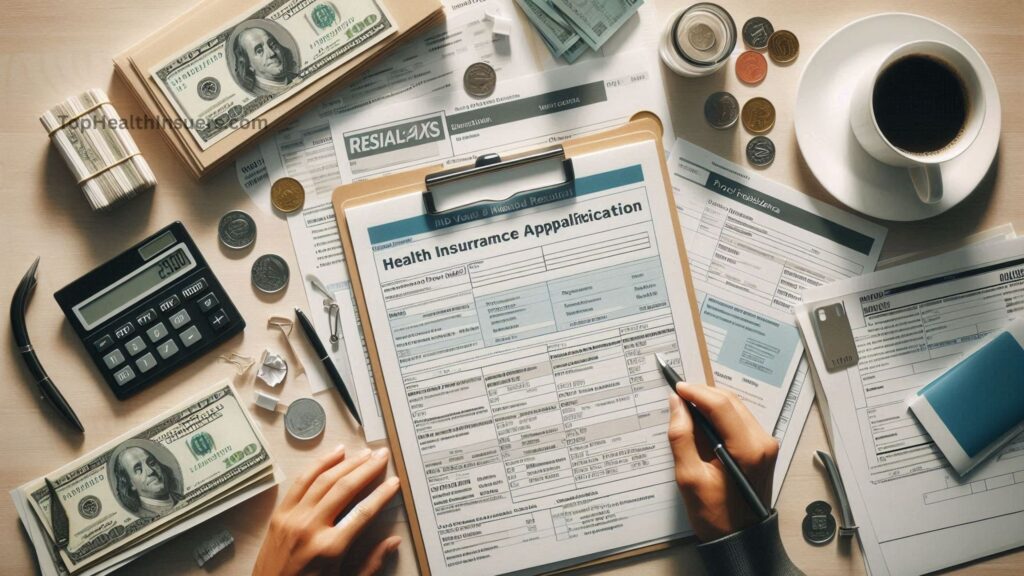How does the Massachusetts Health Connector Work?
Health insurance can feel confusing — especially when you’re trying to figure out the Massachusetts Health Connector or renew coverage through MassHealth. The good news? Once you understand how the process works, getting or keeping affordable health insurance becomes much easier.
This guide breaks down everything you need to know — from required documents and proof of income to tips for faster approval. Whether you’re applying for yourself, your family, or helping someone else, this is your go-to resource for navigating the Massachusetts Health Connector in 2025.
🧩 What Is the Massachusetts Health Connector?
The Massachusetts Health Connector is the state’s official health insurance marketplace. It helps residents:

- Compare affordable health and dental plans
- Apply for coverage (with or without financial help)
- Renew existing plans
- Get access to MassHealth (Medicaid) if eligible
Through the Connector, you can also find out whether you qualify for programs like:
- ConnectorCare: low-cost or free health plans for lower-income residents
- MassHealth: state Medicaid coverage for qualifying individuals and families
👉 You can apply online, by mail, or with help from a certified Navigator or enrollment assister.

Also Read: What’s the Difference Between Copay and Coinsurance?
📋 Why Proof Documents Matter
When applying or renewing your health coverage, you’ll need to prove certain details — like your income, residency, or immigration status. Submitting the right documents helps:
- Speed up approval
- Prevent coverage delays
- Ensure you receive the correct benefits and cost savings
Tip: Some documents can satisfy more than one requirement. For example, a pay stub can serve as both income and address proof.
🗂️ Common Documents You May Need
Here’s a breakdown of what you’ll likely need when applying through MassHealth or the Health Connector.

📑 From MassHealth
- Bring or upload the following, if you have them:
- Your MassHealth ID card
- Your renewal form (usually in a blue envelope)
- A copy of a Request for Information (RFI) notice

🏠 Proof of Massachusetts Address
Provide one of these documents (must include your name and address):
| Type | Example |
|---|---|
| Lease or rental agreement | Signed lease or Section 8 document |
| Property ownership | Deed or mortgage statement |
| Utility bills | Electric, gas, sewer, water, or cable (within 60 days) |
| School records | Enrollment docs showing your address |
| Shelter statement | For homeless applicants |
| Residency affidavit | Signed and dated Massachusetts residency affidavit |
Note: Phone, credit card, or trash bills don’t count.
🔢 Social Security Information
- Social Security card
- Official letter showing you’ve applied for an SSN
- Benefit statement with your full SSN
💰 Proof of Income (For Everyone in Your Household)
MassHealth and the Connector use income information to determine eligibility for financial assistance. Include all relevant documents from the past 60 days.
Accepted documents include:
- Recent pay stubs (include more if your income varies)
- Employer letter (with hours worked, gross pay, date, and signature)
- Federal tax return (Form 1040 with W-2s or 1099s)
- Agricultural or self-employment income statement
- Profit & loss statement (for freelancers or business owners)
- Rental income (lease or Schedule E from taxes)
- Unemployment income (DUA statement or 1099 form)
- Social Security or pension income
- Proof of dividends, capital gains, or interest
- Affidavit of zero income (if applicable)
🛂 Proof of Immigration or Citizenship Status
You’ll need most recent and valid proof of citizenship or immigration status. Acceptable examples include:
- U.S. passport or Certificate of Naturalization
- Green Card (Permanent Resident Card / I-551)
- Temporary I-551 stamp on passport or I-94
- Refugee or asylum documents (I-571, I-327)
- Employment Authorization Card (I-766)
- Notice of Action (I-797)
- Immigration forms for students (I-20, DS-2019)
- ORR (Office of Refugee Resettlement) letters
- Proof of American Indian status
Good to know: Even if your papers are expired or pending, you should still apply. MassHealth staff will review your case and match you with the best coverage possible.
🔗 Helpful reference: U.S. Citizenship and Immigration Services (USCIS)
🧾 Other Helpful Information to Bring
Depending on your situation, you may also need:
- Other health insurance cards (Medicare, employer plans, etc.)
- Employer-provided insurance details (plan name, policy number, premiums)
- Documents showing family changes (court or DCF forms for custody)
- Anything else supporting your application’s accuracy
👵 Additional Documents for Applicants Age 65 and Older
If you’re 65 or older, MassHealth requires proof of your assets and financial holdings in addition to the standard documents.
🏦 Assets and Financial Information (within 45 days)
- Bank or prepaid debit card statements
- Vehicle registration or title
- Proof of income from retirement, annuities, or dividends
- Life insurance documents (showing face and cash value)
- Property deeds, tax bills, or mortgage statements
- Mobile home ownership records
- Funeral or burial contracts (with proof of payment)
- Trust documents (complete, signed, and dated)
💳 Other Insurance Details
- All health, dental, and vision insurance cards
- Insurance premium statements or policy documents
Note: Unless something changes, you’ll only need to verify citizenship and primary residence once.
💡 Tips for a Smooth Health Connector Application
Here’s how to make your experience faster and easier:
- Organize documents early – gather your proofs before you start.
- Use the online portal at MAhealthconnector.org to upload files securely.
- Keep copies of everything you submit.
- Respond quickly if you receive a Request for Information (RFI).
- Seek help from a Navigator or certified assister — their services are free!

Also Read: What Plans are Best for Low-Income Individuals?
🧭 Example: How It Works in Real Life
Case Study:
Maria, a single mom in Worcester, applied for ConnectorCare. She uploaded her latest pay stubs and a lease agreement. Within two weeks, she was approved for a low-cost plan that covered her and her daughter — saving over $200 per month in premiums.
This real-world example shows how submitting clear, accurate documents can lead to faster approval and significant savings.
🏁 Conclusion
The Massachusetts Health Connector makes quality health coverage more accessible for everyone — from students and families to retirees. By knowing which documents you need and how to prepare them, you can simplify your application, get approved faster, and stay covered all year long.
If you’re unsure where to start, visit MAhealthconnector.org or contact a local Navigator for free help.
❓ FAQs About the Massachusetts Health Connector
Q1. What is the difference between MassHealth and the Health Connector?
MassHealth is Medicaid for eligible residents, while the Health Connector helps others buy private insurance (with subsidies if you qualify).
Q2. Can I apply if I’m self-employed or unemployed?
Yes. You’ll just need proof of income (like a profit/loss statement or unemployment form).
Q3. How long does it take to get approved?
Usually within 2–3 weeks if all documents are complete. Missing proofs can delay the process.
Q4. Do I need to reapply every year?
Yes, you must renew coverage annually to keep benefits active.
Q5. What if I move or change jobs?
Update your information right away through your Health Connector account to avoid losing coverage.

Post Comment